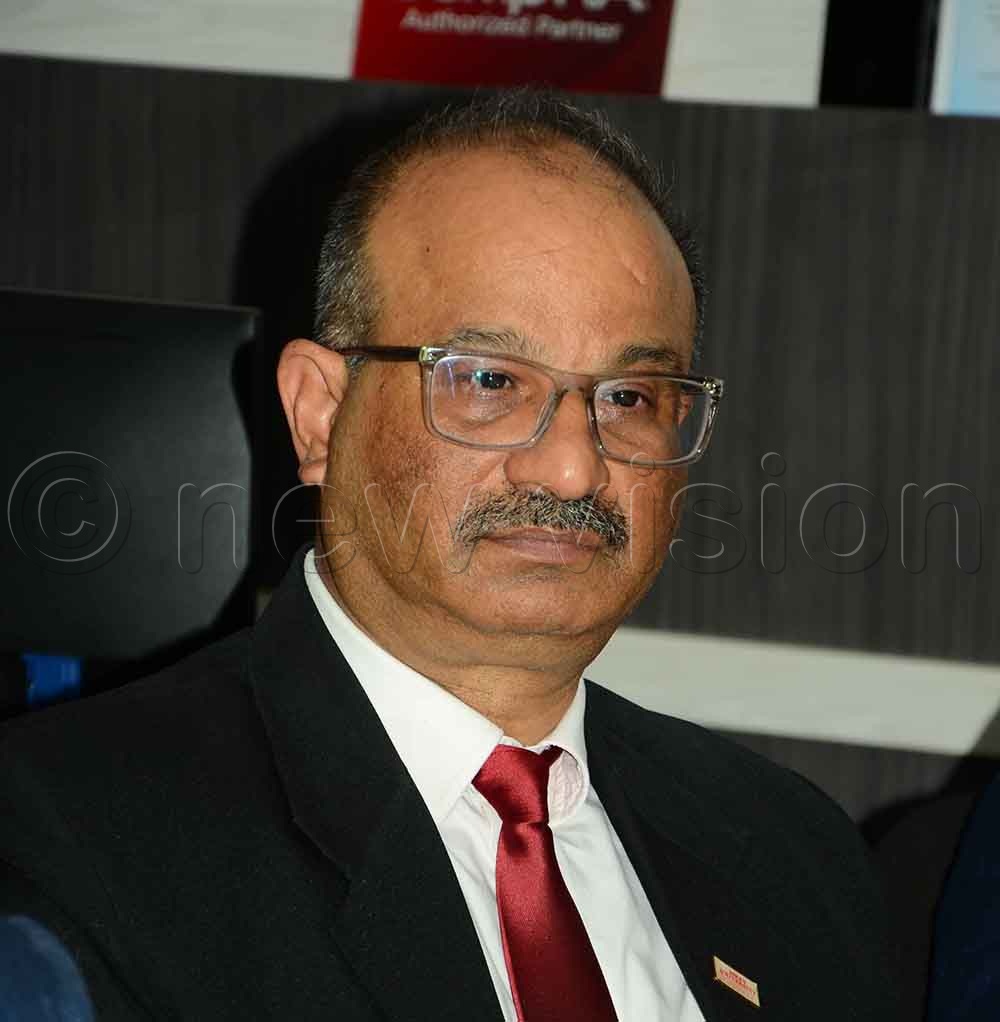Experts urge collaboration to strengthen Uganda's cybersecurity
“Uganda must begin to view ethical hacking not as a threat, but as a vital skill for protecting systems and data from cyberattacks,” ISBAT University director of studies, Dr Pradeep Kumar.
“These students have shown they can identify and seal gaps,” Male said. “If a bank is hacked, they can trace how the breach occurred and recommend preventive measures.”
Experts have called for stronger collaboration between universities, government agencies, and the private sector to bolster Uganda’s cybersecurity defences and safeguard the country’s rapidly expanding digital ecosystem.
The appeal comes amid a surge in cybercrime, which cost financial institutions an estimated shillings 1.02 trillion in 2024, making the banking sector the hardest hit.
The Uganda Police Annual Cyber Crime Report indicates that digital fraud accounted for nearly 32% of all fraud cases that year. With around 23 million internet users, almost half of the population, Uganda’s growing digital footprint has widened the attack surface for cybercriminals.
“Uganda must begin to view ethical hacking not as a threat, but as a vital skill for protecting systems and data from cyberattacks,” ISBAT University director of studies, Dr Pradeep Kumar.
Kumar spoke during the Cyber Stars Competition awards at ISBAT University’s Lugogo campus on November 5, 2025. Organised by the Uganda Communications Commission (UCC), the competition identifies and fixes vulnerabilities while promoting national cybersecurity capacity. Over 30 higher education institutions participated, with five ISBAT students emerging as winners in their categories.
“We need a national focus on cybersecurity capacity building through collaboration,” Kumar said. “If universities, government, and industry work together, Uganda will not only be secure but also become a regional leader in digital innovation.”
He emphasised that modern cybersecurity goes beyond installing protective software—it requires experts who understand systems deeply and can anticipate attacks.
“Our education system must evolve to develop such skills among students,” he added.
Dean of the Faculty of Information and Communication Technology at ISBAT University Dr Tyagi Vaibhav, praised mentorship and teamwork for helping younger students succeed.
Dr. Pradeep Kumar emphasised that modern cybersecurity goes beyond installing protective software—it requires experts who understand systems deeply and can anticipate attacks.
“Some of the students who won are only in their third semester,” he said. “It can be challenging for them to match senior students, but with proper guidance and collaborative support, they have done remarkably well.”
Faculty mentor Kenneth Male noted that organisations often face phishing attacks, data breaches, and system loopholes, yet many overlook security vulnerabilities while implementing digital systems.
“These students have shown they can identify and seal gaps,” Male said. “If a bank is hacked, they can trace how the breach occurred and recommend preventive measures.”
He stressed that as Uganda integrates artificial intelligence (AI) and automation into business operations, skilled cybersecurity professionals will be vital to protect critical digital infrastructure.
“We are now in an era of digital transformation, and collaborative efforts between academia, government, and the private sector are essential to defend against new cyber risks,” he said.
Nicholas Castro, a fifth-semester student pursuing a bachelor’s in cybersecurity and networking, said the competition tested skills in ethical hacking, web exploitation, cryptography, and digital forensics.
“We were able to emerge number one, thanks to our dean, mentors, and the collaborative learning environment,” Kasia said. “Teamwork and consistent practice were key to our success.”
He added that the experience offered hands-on exposure to identifying and mitigating cyber threats, preparing students to contribute effectively to Uganda’s national cybersecurity efforts.
“If you don’t know the source of a system vulnerability, you can’t fix it,” Kasia explained. “Collaboration and shared knowledge are vital to keeping our digital systems safe.”